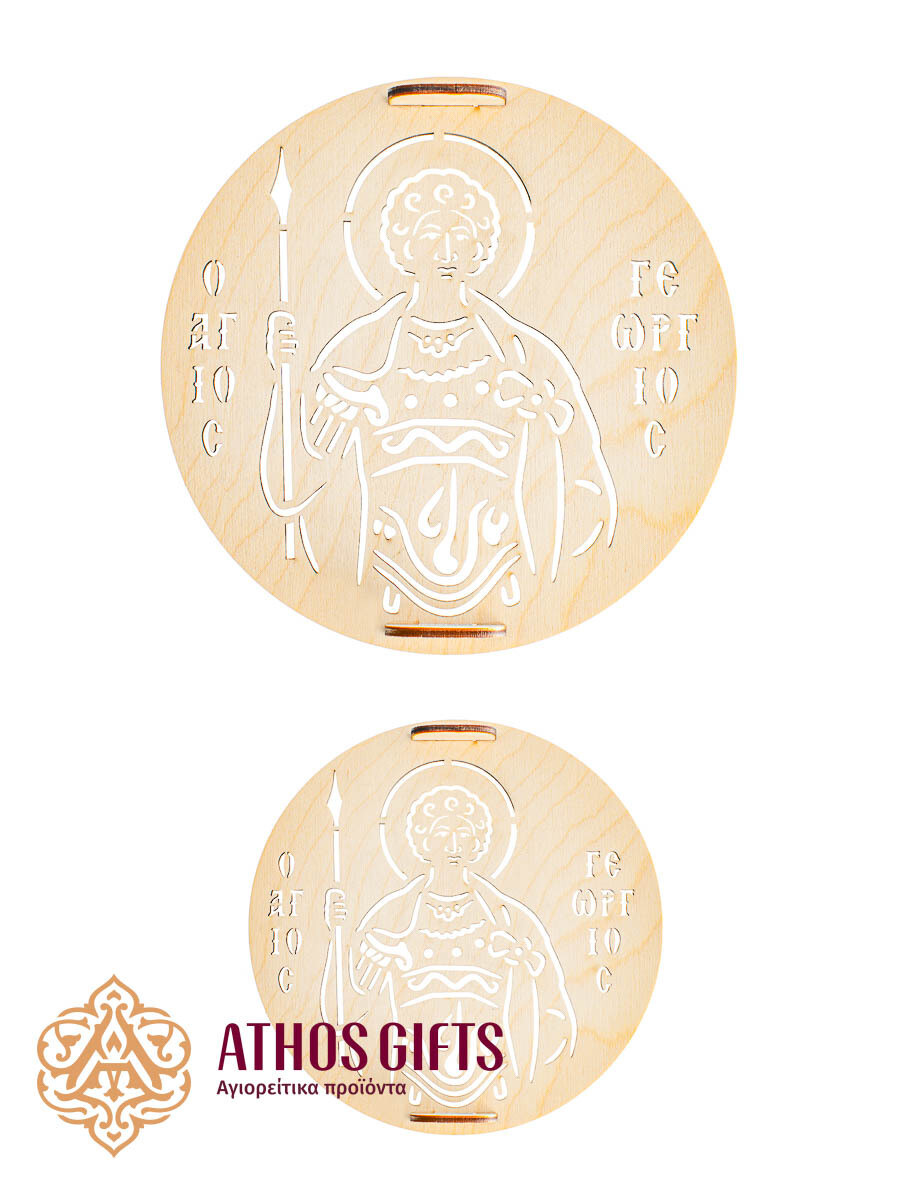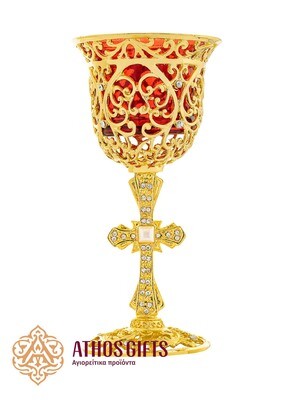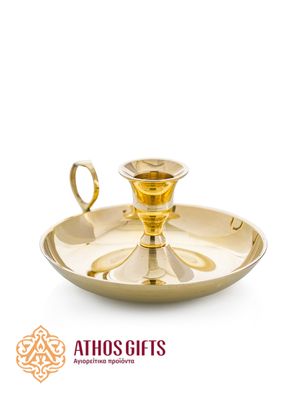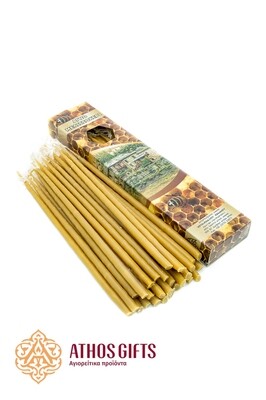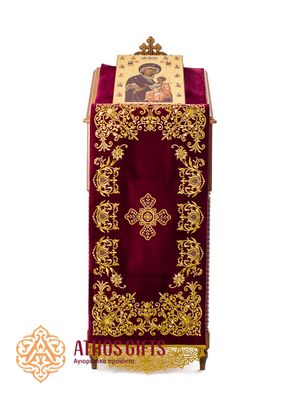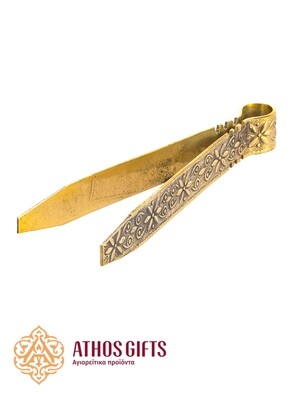Seal for Koliva Saint George
Koliva
Koliva (kollyva, kollyba, or kolyvo) is a dish made of whole-grain wheat. Sometimes barley, millet, or rice are used instead. Another ingredients of the koliva are sugar or honey, as well as nuts, dried fruits, breadcrumbs, sesame seeds and pomegranate. The top of the koliva is sometimes decorated with white or silver colored candies.
Each ingredient of koliva has its own symbolic meaning. Wheat grains symbolize a person who, much like a grain, is a child of the earth. We lie down in the earth in order to rise again to eternal life by Lord's mercy. Honey and sugar symbolize the sweetness of Heaven. Raisins represent Jesus Christ, who is the True Vine. The pomegranate symbolizes the splendor and grace of Heaven. Nuts are life, which prolongs itself. Finally, white candy symbolizes bones, which, unlike corruptible flesh, remain unchanged.
How to use
Cover the surface of the koliva with powdered sugar. Then place a seal on top, in the center of the dish. Sprinkle cinnamon in order to capture the pattern of the seal. Finally, remove the seal as carefully as possible, in order to not disturb the pattern.
Saint George
George the Great Martyr is one of the most famous and revered saints of the Christian world. He lived at the end of the third and beginning of the fourth century. The son of wealthy and pious parents, St. George was brought up in the Christian faith. In his military career he was noted for his courage, intelligence and physical strength. He was also stately and handsome, and therefore soon won favor of the emperor Diocletian. The latter was a fierce opponent of Christianity, and in 303 began the persecution of Christians. Protesting against severe persecutions with all his heart, George gave away all his property to the poor, and then has appeared to Diocletian to openly declare himself a Christian.
The emperor unsuccessfully tried to persuade George to renounce his faith, after which he ordered to torture him. But no matter how fierce his tormentors were, George firmly endured all the trials and did not renounce Christ. Then Diocletian ordered to cut off the saint's head with a sword. Thus, in the year 303 at Nicodemia, George the Great Martyr was executed.
For his courage and firmness with which the saint endured trials, remaining faithful to Christ, and for his spiritual victory over his executioners, he is called Saint George the Victorious. Nowadays a part of the relics as well as the miraculous icon of Saint George are kept in the Xenophontos monastery on the Holy Mount Athos.
